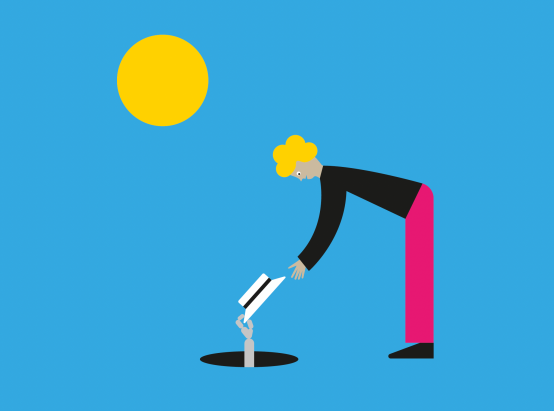Zurich, April 24th 2040
It’s another beautiful but hot April day. About 20 years ago, April was the beginning of spring with mild temperatures and nature slowly reawakening after winter. In 2040, summer is the only season of the year.
I am 36 years old and work at the University of Zurich. My role as an event coordinator gained importance after the COVID-19 pandemic ended because social events are the only opportunity to shake other people’s hands. All other aspects of studying and working on campus are held online for the reasons of cost-efficiency, flexibility and reduction of CO2.
If you cannot remember these old times when classes and examinations took place on campus, or you cannot even imagine this because you were born within the last two decades, visit the main building of ETH Zurich – it has transformed its library and a few classrooms into exhibitions with holograms which move, talk and behave like people from the pre-2020 era.
As an employee of UZH and a student of ETH, I can work and study from home, or I can use one of hundreds of booths located throughout the entire Zurich region: in the busy city center, at a quiet lakeside, facing the Zurich Opera House or in an endless meadow with cows – different locations offering a variety of sources of inspiration.
Today I need the hectic spirit of Paradeplatz to inspire me, so I am choosing a booth there. The booths are made of glass and equipped with everything you need to be productive and feel good.
Travelling in Zurich has never been more convenient: Zurich is finally a non-smoking and advertisement-free city. Oh, and public transportation is free of charge!
The world in 2040 is a graphene-dominated one. Devices, clothing and almost everything we use every day are all based on graphene – even my Walkman, which is enjoying a second life and tremendous popularity. By the way, people who still have the first Walkman launched by Sony in the 20th century can sell it now and make a fortune. I should probably check my parents’ attic...
Let’s get back to the city again. There are certainly fewer vehicles than ever before – especially trucks, since Galaxus, Coop (yes, they still exist) and other retailers use the cargo sous terrain (CST) system, where goods are transported underground.
The way we do shopping has changed, too. On my way home later today, I will stop by at one of many interactive boards located literally everywhere. I will select the items I need for dinner that evening, place my finger with a built-in chip containing personal data on a sensor and ... voilà! I’ve just paid and confirmed the address where goods need to be delivered. They may be next to my door before I arrive, delivered from the CST station to my home address by a robot.
Robots are very friendly. They are hard-working and therefore have very strong representatives lobbying for their rights. Some people are saying that we should not worry since rights for robots are something to deal with in the future. But the future of today is happening already tomorrow.



